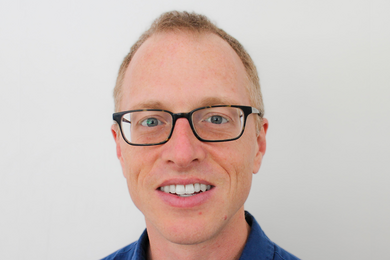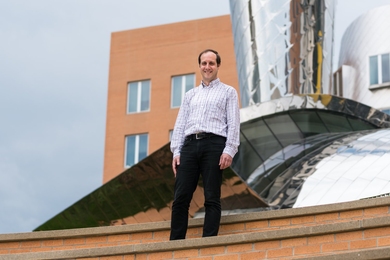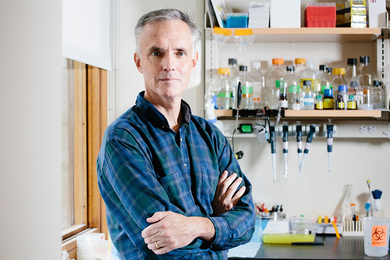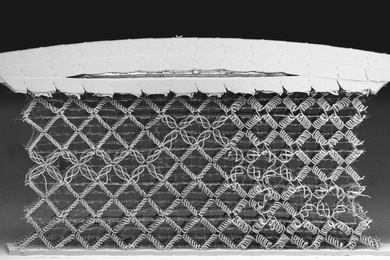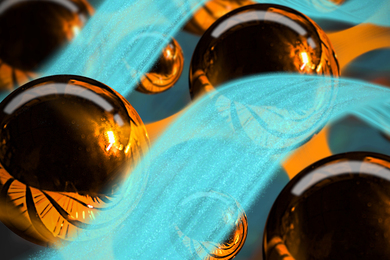
Shuguang Zhang (right), associate director of MIT's Center for Biomedical Engineering, recently received Austria's 2006 Wilhelm Exner Medal for outstanding contributions to science and technology from the president of Austria, Heinz Fischer (left). Zhang was honored for his work with self-assembling peptides--microscopic strings of amino acids with seemingly inexhaustible possibilities for producing new materials capable of solving some of the most pressing problems in medicine, materials science, biology and engineering. Two other MIT scientists have won the Exner Medal since it was first awarded in 1921. They are Charles H. Townes (1970), a physicist who built the first maser (microwave amplification by stimulated emission) and who served as provost of MIT; and August (Gus) F. Witt (1975), known for his research in electronic materials. Zhang is the first Chinese scientist to receive the Exner Medal. Photo / Hofburg Palace, Presidential Office of Austria
A version of this article appeared in MIT Tech Talk on December 13, 2006 (download PDF).
